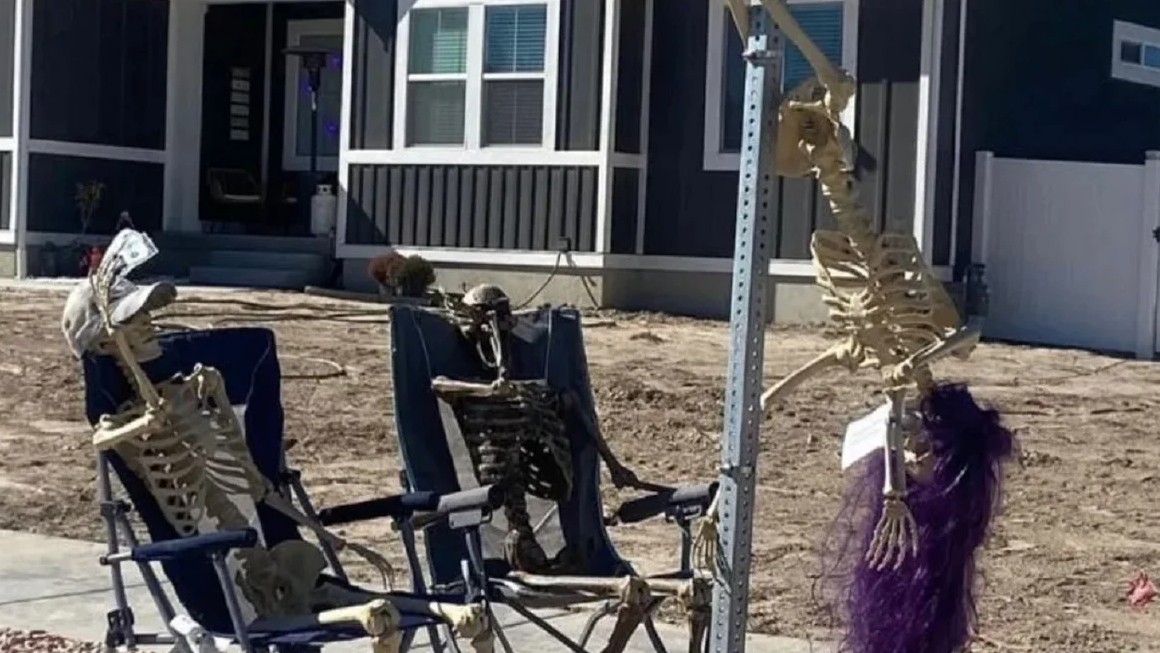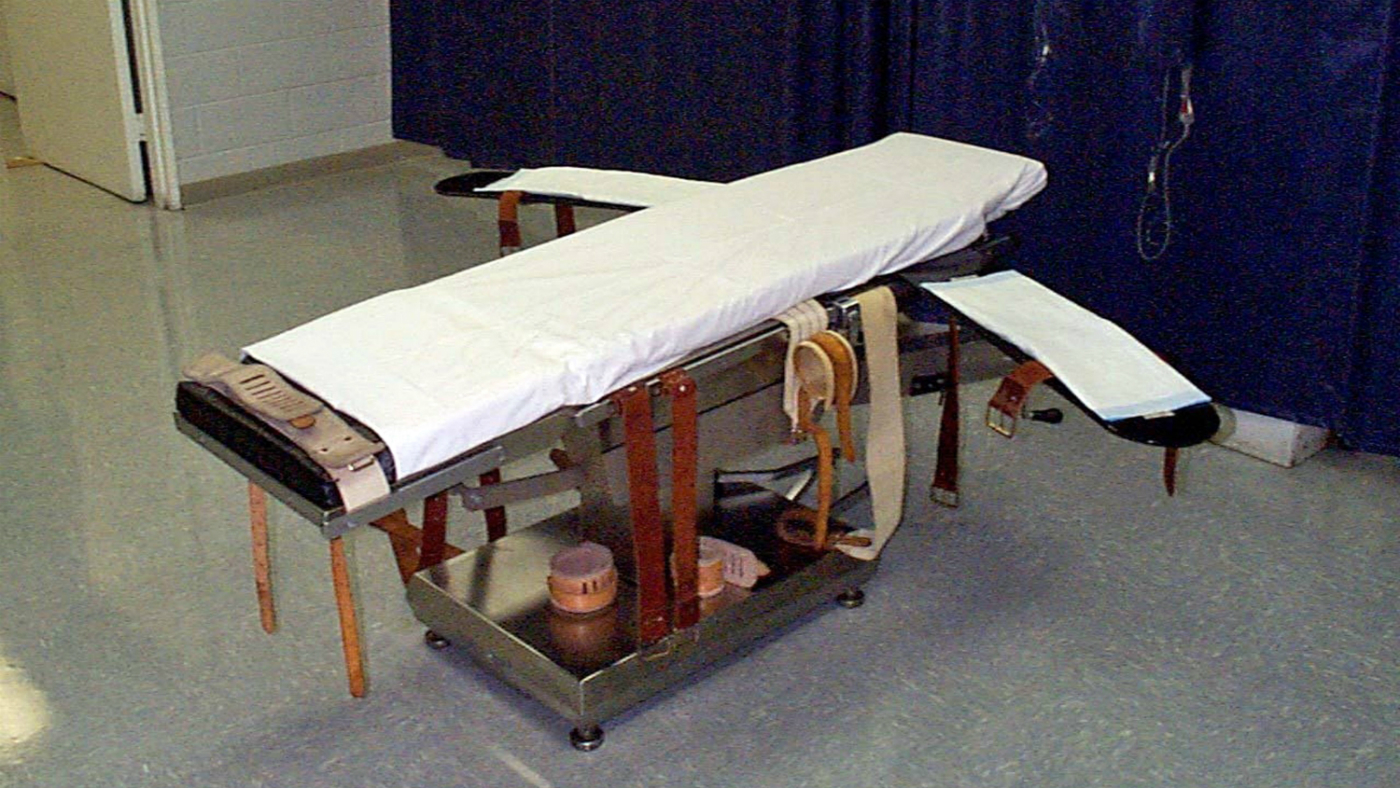Utah death penalty: is a firing squad really 'more humane'?
Utah becomes the only US state to approve death by firing squad because of a shortage of lethal injections

A free daily email with the biggest news stories of the day – and the best features from TheWeek.com
You are now subscribed
Your newsletter sign-up was successful
Utah has reintroduced death by firing squad for inmates on Death Row in cases where the drugs for lethal injections are unavailable.
The state's governor Gary Herbert signed the bill into law this week. He admitted that he found the method "a little bit gruesome" but said the state required a back-up execution method.
"We prefer to use our primary method of lethal injection when such a sentence is issued," the governor's spokesman said, according to the BBC.
The Week
Escape your echo chamber. Get the facts behind the news, plus analysis from multiple perspectives.

Sign up for The Week's Free Newsletters
From our morning news briefing to a weekly Good News Newsletter, get the best of The Week delivered directly to your inbox.
From our morning news briefing to a weekly Good News Newsletter, get the best of The Week delivered directly to your inbox.
"However, when a jury makes the decision and a judge signs a death warrant, enforcing that lawful decision is the obligation of the executive branch."
The controversial issue has polarised politicians. Many argue that it is a faster and more humane form of execution but opponents insist that it would be a throwback to the state's Wild West days. Civil rights groups say the move makes Utah "look backward and backwoods".
How does a firing squad work?
Inmates are typically strapped to a chair, with a target pinned over their heart. A hood is placed over their heads and law enforcement officers, standing at a distance of 25ft, aim for the target with their .30-caliber rifles.
A free daily email with the biggest news stories of the day – and the best features from TheWeek.com
"As in traditional military firing squads, one of those shooters' guns will be loaded with blanks to keep each one uncertain about whether he fired a fatal shot," says Slate.
There have been only three executions by firing squad in the US since 1976, according to the Washington-based Death Penalty Information Center.
Why has it been introduced?
Utah is just one of several states seeking alternative execution methods following a shortage of lethal injections, as European drug companies opposed to the death penalty refuse to supply components of the drug. This has led executioners to experiment with drug cocktails that have led to a number of botched executions.
The legislation reinstates the use of firing squads more than a decade after the practice was outlawed in Utah. Lethal injection would be kept as the primary method of execution, but authorities would be allowed to use marksmen if the drugs were unavailable.
The debate
The legislation's proponents argue that death by firing squad is far more humane than lethal injection, because it's quicker. In one study, monitors registered complete heart death in less than a minute after an inmate was shot. A "typical, complication-free" lethal injection, on the other hand, takes roughly nine minutes to kill a prisoner. Last year, convicted murderer Clayton Lockett took 43 minutes to die.
The legislation would give the state more options, said the bill's sponsor, Republican Paul Ray. "We would love to get the lethal injection worked out so we can continue with that but if not, we now have a back-up plan," he said.
Opponents argue that the method is gruesome, outdated and "a relic of a more barbaric past". "I think Utah took a giant step backward," Ralph Dellapiana, director of Utahns for Alternatives to the Death Penalty, told the Associated Press.
The Death Penalty Information Center says that a firing squad is not a foolproof method of execution, as the prisoner could move or marksmen could miss the heart, which would cause a slower and more painful death.
For some Republican politicians, the method of execution is irrelevant. "I realise this may sound harsh," Mike Christian told the BBC after Lockett's botched execution, "but as a father and former lawman, I really don't care if it's by lethal injection, the electric chair, firing squad, hanging, the guillotine or being fed to the lions".
For others the debate "has a ring of the absurd", as no method of execution can ever be humane, says the BBC. "Those opposed in principle to the death penalty believe all its forms are immoral and arguments about methods are irrelevant."
-
 The ‘ravenous’ demand for Cornish minerals
The ‘ravenous’ demand for Cornish mineralsUnder the Radar Growing need for critical minerals to power tech has intensified ‘appetite’ for lithium, which could be a ‘huge boon’ for local economy
-
 Why are election experts taking Trump’s midterm threats seriously?
Why are election experts taking Trump’s midterm threats seriously?IN THE SPOTLIGHT As the president muses about polling place deployments and a centralized electoral system aimed at one-party control, lawmakers are taking this administration at its word
-
 ‘Restaurateurs have become millionaires’
‘Restaurateurs have become millionaires’Instant Opinion Opinion, comment and editorials of the day
-
 Row over pole-dancing skeleton
Row over pole-dancing skeletonTall Tales And other stories from the stranger side of life
-
 Ghana abolishes the death penalty
Ghana abolishes the death penaltyfeature It joins a growing list of African countries which are turning away from capital punishment
-
 Baby born using three people’s DNA
Baby born using three people’s DNAfeature And other stories from the stranger side of life
-
 Singapore executes man for trafficking 1kg of cannabis
Singapore executes man for trafficking 1kg of cannabisSpeed Read Human rights organisations criticise city-state for hanging Singaporean man whose case was ‘far from clear cut’
-
 A snowy winter helped Great Salt Lake water levels rise 3 feet above historic low
A snowy winter helped Great Salt Lake water levels rise 3 feet above historic lowSpeed Read
-
 Pennsylvania governor says he won't sign execution orders, calls for repeal of the death penalty
Pennsylvania governor says he won't sign execution orders, calls for repeal of the death penaltySpeed Read
-
 Thai fisherman finds whale vomit worth £2.4m
Thai fisherman finds whale vomit worth £2.4mSpeed Read And other stories from the stranger side of life
-
 Supreme Court blocks Arkansas executions
Supreme Court blocks Arkansas executionsSpeed Read Prisoners Don Davis and Bruce Ward saved from the death penalty with just hours to spare